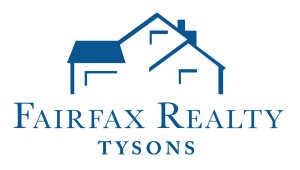My knowledge and experience can translate into big savings; smoother interactions among buyers, sellers and other stakeholders; less stress; and a more enjoyable experience and successful outcome. The following are key steps in the buyer process:
· Sign Exclusive Right to Represent Buyer Agreement
· Search for, visit, and evaluate homes in the market based on buyer criteria.
· Sign Offer to Purchase Agreement
· Make Buyer Disclosure
· Obtain Proof of Funds or Pre-approval
· Transfer Earnest Money Deposit to Escrow Agent or Settlement Attorney.
· Inspections (Home, Radon, and Termite)
· Select Lender and Mortgage Terms
· Review HOA Disclosure
· Obtain Lead Based Paint Disclosure
· Obtain Appraisals
· Obtain Notice for Wire Fraud Prevention
· Schedule Closing
· Select Home Warranty
· Conduct Final Walkthrough
Advising Buyers
Leadership skills and experience are needed to assist buyers to find the right home and negotiate the best deal. Also, the loan process can be complicated and intimidating particularly for first time home buyers. Assisting buyers in this process can reduce stress, and save time and money.
· Determine buyer needs, wants and financial situation to locate and help purchase their dream home. Rent vs. buy decisions are explored when appropriate.
· Recommend ways to improve buyer’s loan qualifications, reduce mortgage rates, lower down payments, and reduce interest expenses over the life of the loan.
· Explain benefits and costs of locking down or buying down mortgage interest rates.
· Assist buyer in selecting the best financing including conventional, seller provided balloon notes, VA, FHA, conventional/jumbo, and adjustable-rate mortgages (ARM) and associated amortization schedules.
· Advise on options agreements (such as lease-to-buy) and obtaining assumable loans.
· Secure earnest money deposits with an escrow agent or settlement attorney.
· Calculating Return on Investment (ROI) for investment property based on annual costs for maintenance, insurance, taxes, principal and interest, rental income, and long-term appreciation. Various leases such as triple-net leases can be utilized to improve bottom-line costs, add investment stability/predictability, and increase profits.
· Calculate cost-benefit ratios and break-even payback periods.
· Determine the 20% threshold for Private Mortgage Insurance (PMI).
Industry Knowledge
Having worked for four years at Federal Home Loan Mortgage Corporation (Freddie MAC) and Federal National Mortgage Association (Fannie Mae), I understand financing. These Government Sponsored Enterprises (GSE) support home acquisition through the creation of a secondary mortgage market. My work included
· Conducted business analysis of back-office operations, developed data models, and built scheduled feeds (known as ETLs) for input to FMAC’s Corporate Data Warehouse (CDW).
· Developed FMAE’s Daylight Overdraft Protection System. This system was built from scratch to comply with the Federal Reserve Bank mandate that commercial loans be used to meet daytime obligations.
FMAC and FNMA funds are obtained through the creation and sale of mortgage-backed securities. These funds are then used to purchase mortgage portfolios from the banks and lenders that meet specific guidelines. The mortgages are then bundled into investment-grade securities. To minimize mortgage risk to investors, FMAC establishes loan qualification standards for banks and lending institutions to use.
Writing Offers that Win
In this market, buyers need to construct their offer to have maximum appeal to sellers who are often receive multiple competing offers. Most buyers assume that price is the most important differentiator. However, there are many ways to compete. Determining what the seller values most is the key. Then, with a realtor knowledge, constructing an offer that can appeal favorably to the seller. There are a wide variety of methods for this including rent buy-back, gap coverage, contingency waivers, lender selection, time to settlement, paying settlement costs, increasing earnest money deposit, and demonstrating financial stability or pre-qualifying lender approval.
Negotiating Contracts
Identifying creative win-wins for the buyer and seller is key to closing deals. This involves determining what each party values most and then, negotiating these items including pricing, terms, conveyances, settlement date, and more. Having the knowledge and skills to negotiate these factors and broker a signed purchase agreement is critical. Agreement is reached when both parties are satisfied with their offer and commit their signatures to the Sales Contract.
Getting to Settlement
Contracts can often get hung up between ratification and settlement. A knowledgable realtor will manage this process, paying close attention to details and organization, to avoid issues with the following:
· Home inspections, radon tests, and termite inspections.
· Contingencies such as financing and appraisals need to be removed on time.
· HOA and condominium documents need to be reviewed prior to expiration of contingency deadlines.
· Fnal walk throughs.
· Selecting home insurance policies and warranty plans
· Escrow agents and settlement attorneys need input in order to complete their activities.
· Settlement issues can arise that require realtor expertise and support.
Copyright © 2024 Bright MLS Inc. 

Website designed by Constellation1, a division of Constellation Web Solutions, Inc.
